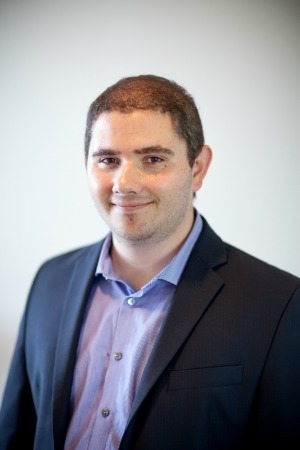Santiago Garcés, who came to Notre Dame from his native Bogotá, Colombia, as an undergraduate to earn a degree in electrical engineering and political science, stayed for the ESTEEM program where he found ways to combine his interests in technology and public policy. He worked with Dean Greg Crawford on a device to help identify the age of bruises, a critical tool to prevent child abuse.
“ESTEEM transformed my way of looking at what I was going to do,” he says. “That opened my eyes and led me to see it wasn’t only from a lab bench that you could use the technical skills to influence and make changes in the world. It opened my practical appetite.”
As the yearlong program was ending, Garcés was one of seven ESTEEM students who launched enFocus, a program supported by South Bend business and government leaders to promote “brain gain” by keeping the innovative young people in the city for a year where they would work on projects for sponsors as well as improving the area’s quality of life.

His work attracted the attention of Mayor Pete Buttigieg, who asked Garcés to stay as an independent consultant when the year was complete. Garcés, who has observed the effects of both good and bad city government in Bogotá, was eager to participate.
“I kind of fell in love with the government side,” he says. “It made me reflect back on this experience when I was in Colombia. How much can one person make a difference in government? A lot of people especially in the United States, are skeptical of government. I was thinking how much good you can do.”
Garcés worked as an independent consultant for about 18 months, gathering a team of interns, contractors, city employees, and others to tackle big projects across departments with technology solutions that would improve services and lower costs. The group became the Office of Innovation at the beginning of this year.
“Sometimes we zero in on a particular problem, assess, propose changes, implement changes, evaluate, adjust based on goals,” he says, adding that ESTEEM provided a foundation for those skills. “The more important part is that understanding of value and being customer-centric.
“The other thing that ESTEEM focused on was adaptability. I came to understand the entrepreneurial aspect of the program. You have to be constantly wiling to adjust what you do and how you do it and not be complacent. It’s the basics of business but it’s not something you get from a traditional technical education.”